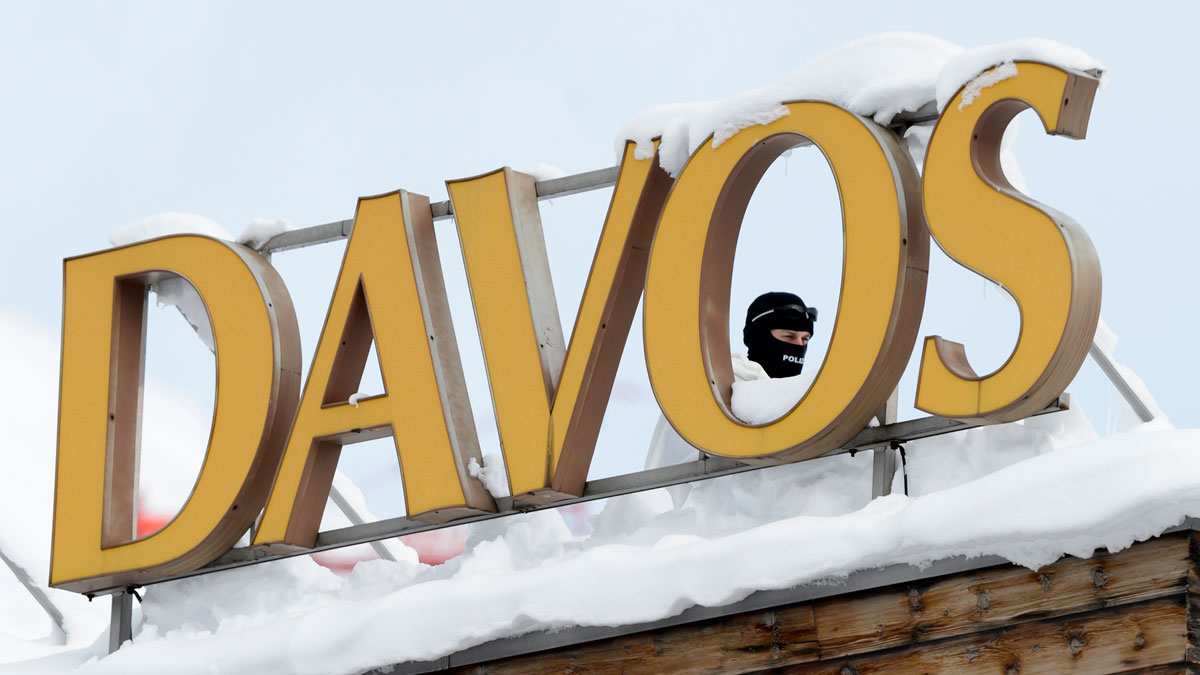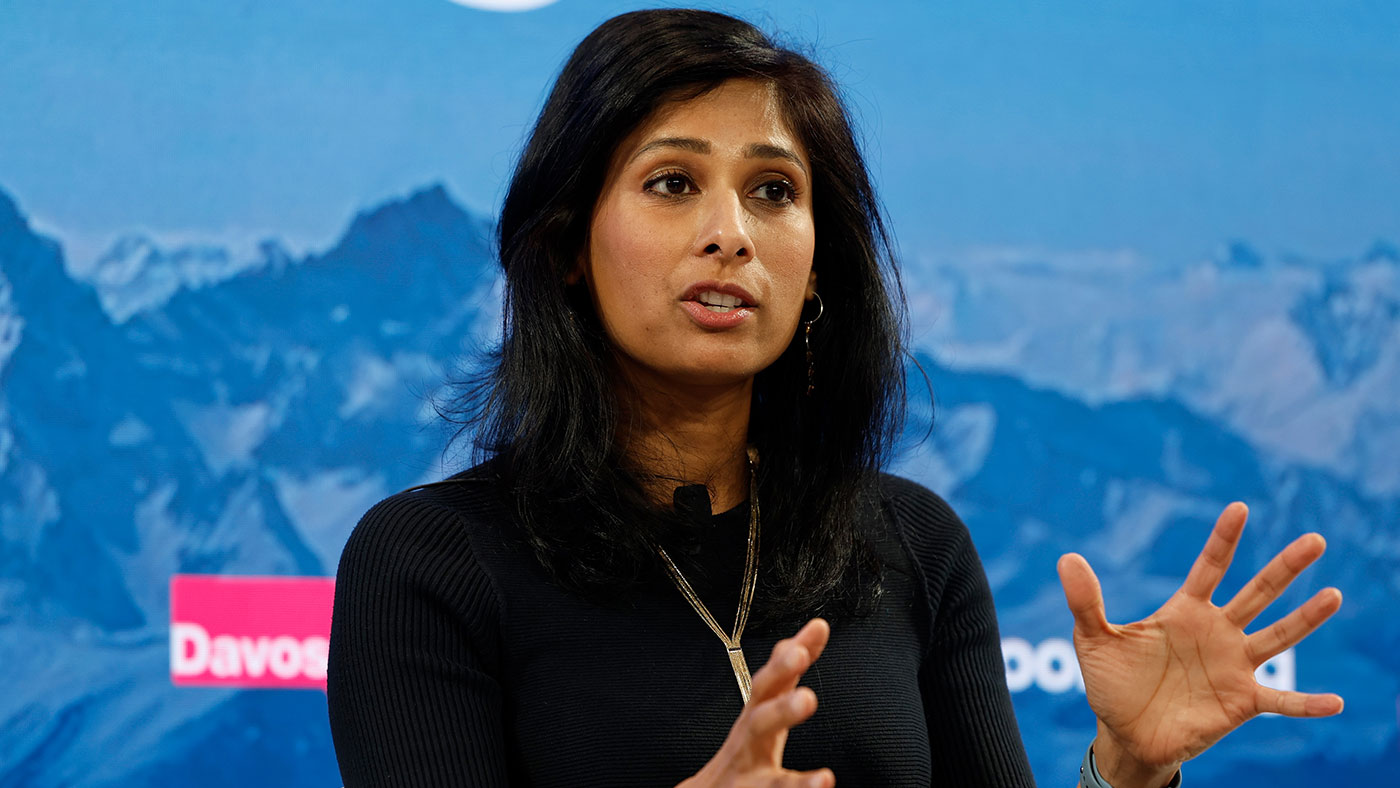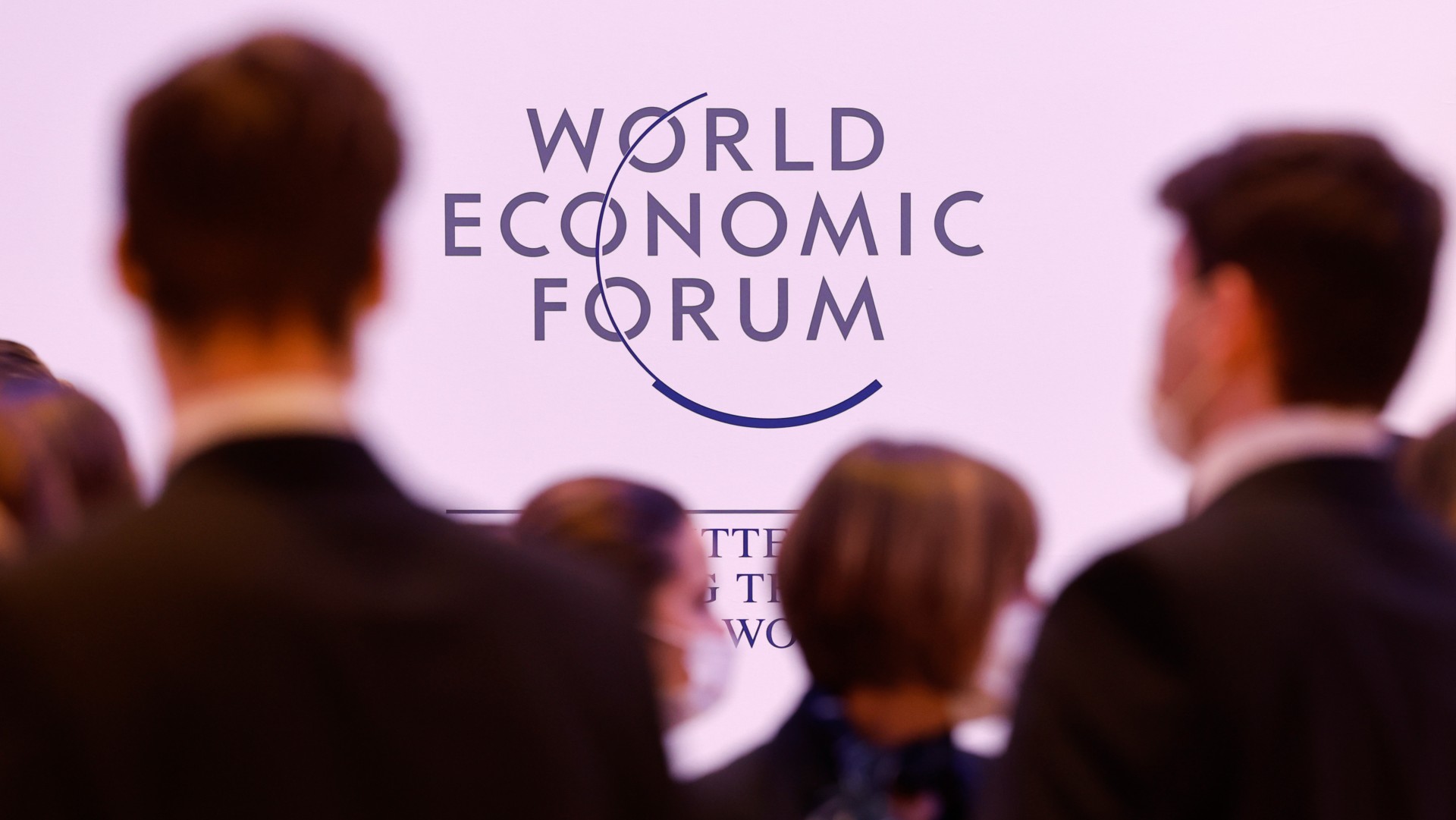World Economic Forum: what did we learn in Davos?
The theme was meant to be a new 'industrial revolution', but market turmoil took over

A free daily email with the biggest news stories of the day – and the best features from TheWeek.com
You are now subscribed
Your newsletter sign-up was successful
"Until the spasm in the markets interfered, Davos 2016 was supposed to be about how humankind will cope in the new age of the smart machine," writes Larry Elliot in The Guardian.
The five-day World Economic Forum, which finished at the weekend, carried the subtitle of the "Fourth Industrial Revolution". This was the title of a book written by WEF chairman Klaus Schwab - a copy of which was handed to each delegate - that speculates on major upheaval to global economies in the age of the driverless car, robotics and artificial intelligence.
This latest revolution will apparently happen quickly, will displace many low-paid workers and could, if left unchecked, result in greater levels of inequality.
The Week
Escape your echo chamber. Get the facts behind the news, plus analysis from multiple perspectives.

Sign up for The Week's Free Newsletters
From our morning news briefing to a weekly Good News Newsletter, get the best of The Week delivered directly to your inbox.
From our morning news briefing to a weekly Good News Newsletter, get the best of The Week delivered directly to your inbox.
On the other hand, say others, it's just the latest phase in the increasing productivity of business and will result in as many, if not more opportunities for employment and enterprise as it destroys.
These issues should have been discussed at length over the five days but in the event, they became a background theme. This was "partly because not everyone bought into the mantra", writes James Quinn in the Daily Telegraph, but mostly because the markets spent much of the week in meltdown, overshadowing the agenda for policymakers.
A cliche of the conference, writes Gideon Rachman, in a blog for the Financial Times, was that China's exchange rate policy and the collapsing oil price kept delegates awake at night. In short, political and business leaders spent much time simply discussing the headline issues on the markets, with little in the way of tangible outcomes for observers.
There was a well-attended speech in the main hall by Prime Minister David Cameron that "was viewed as a successful discussion of the key hurdles he is still facing when it comes to the Brexit negotiations", while key debates on the refugee crisis and the fallout from the war in Syria "delivered few answers", notes Quinn. Not much that was earth-shattering, then.
A free daily email with the biggest news stories of the day – and the best features from TheWeek.com
Still, what happens in the main hall in front of the journalists and cameras is not really the point of Davos.
"The majority of chief executives spent their time away from the centre, meeting clients, ministers and other key contacts in a series of half-hour meetings," writes Quinn. As many as 35 meetings over three days was "not unusual", which was described as "a form of shuttle diplomacy on speed".
World Economic Forum 2016: what to expect in Davos
19 January
Today sees the start of the annual World Economic Forum meeting in Davos, with politicians, business leaders and other powerful figures gathering in the Swiss mountains to discuss the global economy.
What happens in Davos?
Organisers say the three-day event is "a platform for collaborative thinking and searching for solutions - not for making decisions". With dozens of panel discussions, workshops and closed-door meetings, it also serves as networking event for the 2,500 delegates, who are made up of business figures, central bankers and political leaders from more than 100 countries.
"In addition to all the talking, there is a lot of partying," says the BBC's Emily Young. "But they're not exactly parties to write home about. Unless chief executives shaking their thing does it for you."
Who is attending?
Nearly everyone who matters in the world of business and politics, says CNN. This year's guest list includes Prime Minister David Cameron, Microsoft boss Bill Gates and IMF chief Christine Lagarde. The entertainment industry is also well represented, with actor Leonardo DiCaprio and musicians Bono and Will.i.am due to attend.
What will be discussed?
Convening under the theme of "the fourth industrial revolution", the WEF will focus on technologies such as robotics and artificial intelligence that are poised to transform economies and societies.
The volatility in Chinese markets, plummeting oil prices and rising interest rates are also guaranteed to be high on the agenda, as is the ongoing refugee crisis.
Why the focus on new technologies?
In short, because their increasing use is supplanting human labour and posing severe challenges. A report published on the eve of the conference predicts more than seven million jobs in the world's largest economies will be put at risk in the next five years as new technologies transform the workplace.
What other issues are on the agenda?
In addition to the matters outlined above, climate change will underpin much discussion. In the wake of last month's agreement in Paris to tackle the issue and limit global temperature rises, a survey of experts published last week identified the consequences of climate change as the biggest threat facing the global economy over the next decade.
-
 Crisis in Cuba: a ‘golden opportunity’ for Washington?
Crisis in Cuba: a ‘golden opportunity’ for Washington?Talking Point The Trump administration is applying the pressure, and with Latin America swinging to the right, Havana is becoming more ‘politically isolated’
-
 5 thoroughly redacted cartoons about Pam Bondi protecting predators
5 thoroughly redacted cartoons about Pam Bondi protecting predatorsCartoons Artists take on the real victim, types of protection, and more
-
 Palestine Action and the trouble with defining terrorism
Palestine Action and the trouble with defining terrorismIn the Spotlight The issues with proscribing the group ‘became apparent as soon as the police began putting it into practice’
-
 The outbreak of optimism at Davos
The outbreak of optimism at DavosTalking Point Uniformly bleak predictions have given way to greater cheer. But don’t count your chickens yet
-
 Davos 2023 and the decline of globalisation
Davos 2023 and the decline of globalisationTalking Point Covid and geopolitical tensions usher in ‘new age of self-sufficiency’, leaving World Economic Forum out in the cold
-
 Labour shortages: the ‘most urgent problem’ facing the UK economy right now
Labour shortages: the ‘most urgent problem’ facing the UK economy right nowSpeed Read Britain is currently in the grip of an ‘employment crisis’
-
 Will the energy war hurt Europe more than Russia?
Will the energy war hurt Europe more than Russia?Speed Read European Commission proposes a total ban on Russian oil
-
 Will Elon Musk manage to take over Twitter?
Will Elon Musk manage to take over Twitter?Speed Read The world’s richest man has launched a hostile takeover bid worth $43bn
-
 Shoppers urged not to buy into dodgy Black Friday deals
Shoppers urged not to buy into dodgy Black Friday dealsSpeed Read Consumer watchdog says better prices can be had on most of the so-called bargain offers
-
 Ryanair: readying for departure from London
Ryanair: readying for departure from LondonSpeed Read Plans to delist Ryanair from the London Stock Exchange could spell ‘another blow’ to the ‘dwindling’ London market
-
 Out of fashion: Asos ‘curse’ has struck again
Out of fashion: Asos ‘curse’ has struck againSpeed Read Share price tumbles following the departure of CEO Nick Beighton